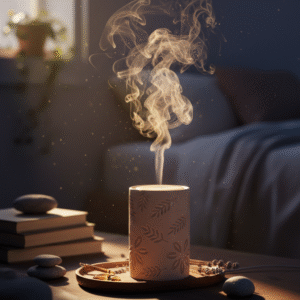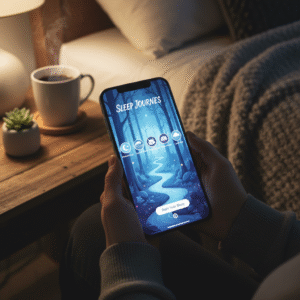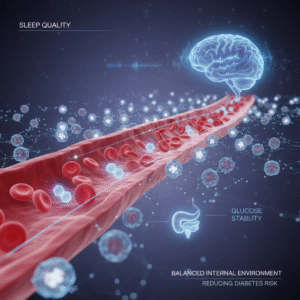Learn about the effects of caffeine consumption on adolescent sleep patterns, alertness, and school performance based on recent studies. Discover expert tips on managing caffeine intake for better overall sleep health and academic success for teens.
Caffeine, Teen Sleep Habits, Academic Performance: Caffeine consumption among adolescents has been linked to disrupted sleep patterns, decreased alertness, and poor academic performance. Recent studies shed light on the significant impact of caffeine on young teens’ sleep habits, daytime cognitive function, and overall well-being. Understanding the relationship between caffeine intake and its effects on sleep and academic success is crucial for parents, educators, and teens themselves.
The Relationship Between Caffeine Consumption and Adolescent Sleep Patterns
Recent research involving young teens has highlighted the correlation between caffeine consumption and altered sleep patterns. Adolescents who consume caffeine, especially later in the day, tend to experience disruptions in their sleep-wake cycles. A study among seventh-grade students indicated that caffeine intake in the afternoon was associated with delayed wake-up times on Mondays, leading to a potential decline in academic performance.
Moreover, weekend caffeine consumption among teenagers has been shown to disturb the natural transition in sleep schedules from weekdays to weekends. Teens who consume caffeine tend to go to bed later on weekends, impacting their overall sleep quality and daytime alertness. The negative repercussions of weekend caffeine intake extend to mood and cognitive function during the day, further emphasizing the importance of regulating caffeine consumption among young individuals.
Understanding the Effects of Caffeine on Adolescent Alertness and Academic Performance
Research dating back to 2003 has demonstrated a clear relationship between caffeine intake and daytime alertness in adolescents. Higher caffeine consumption has been associated with reduced total sleep time, increased nighttime awakenings, and heightened daytime sleepiness. The study revealed that young teens often exceed recommended daily caffeine limits, consuming beverages such as sodas and coffee that contain varying levels of caffeine, with certain products delivering substantially higher doses.
Experts from the American Academy of Sleep Medicine caution against late-day caffeine consumption, as it can interfere with falling asleep and maintaining restful sleep throughout the night. They advise adolescents to avoid consuming caffeine in the late afternoon and evening to promote healthy sleep hygiene. Education and parental guidance are essential in helping teens make informed choices about their caffeine intake, encouraging the selection of beverages with minimal or no caffeine content.
Strategies for Managing Caffeine Intake and Promoting Healthy Sleep Habits in Adolescents
Given the detrimental effects of excessive caffeine consumption on teen sleep quality and academic performance, implementing strategies to limit caffeine intake is crucial. Parents, educators, and healthcare providers can collaborate to raise awareness about the risks of caffeine consumption among adolescents and offer practical solutions for managing caffeine intake responsibly.
Tips for Managing Teen Caffeine Consumption:
- Encourage teens to avoid caffeine in the late afternoon and evening to support healthy sleep patterns.
- Provide education on the caffeine content of common beverages and encourage teens to opt for caffeine-free alternatives.
- Promote a balanced approach to caffeine consumption, especially during intensive school periods, to prevent disruptions in sleep and daytime functioning.
- Engage teens in discussions about the importance of sleep hygiene and the impact of caffeine on their overall well-being and academic performance.
By empowering adolescents with knowledge about caffeine’s effects on sleep and alertness, families and communities can work together to prioritize healthy sleep habits and academic success in young individuals. Supporting teens in making informed choices about their caffeine intake can lead to improved sleep quality, enhanced daytime performance, and overall well-being.
Conclusion
The relationship between caffeine consumption, sleep habits, and academic performance in adolescents is complex and multifaceted. Recent studies have emphasized the detrimental effects of excessive caffeine intake on teen sleep quality, alertness, and emotional well-being. By raising awareness, providing education, and implementing strategies to limit caffeine consumption, parents and educators can play a vital role in promoting healthy sleep habits and academic success among teens. Empowering young individuals to make informed choices about their caffeine intake can positively impact their overall quality of life and long-term wellness.
Frequently Asked Questions
How does caffeine consumption affect teen sleep patterns?
Caffeine consumption among teenagers can disrupt their sleep-wake cycles, leading to delayed wake-up times, reduced total sleep time, increased daytime sleepiness, and mood disturbances. Avoiding caffeine in the late afternoon and evening can help promote healthier sleep patterns for teens.
What are some practical tips for managing teen caffeine intake?
Encourage teens to opt for caffeine-free beverages, educate them about the caffeine content of common drinks, and advise against consuming caffeine in the late afternoon or evening. By promoting a balanced approach to caffeine consumption and prioritizing healthy sleep hygiene, parents and educators can support teens in achieving better overall sleep health and academic success.








